Transgender Twins
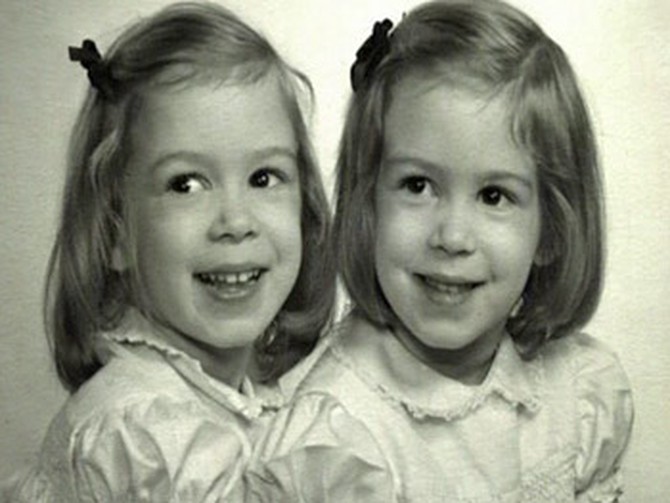
Bonnie and Brenda were picture-perfect identical twins; even family and close friends had trouble telling them apart.
But early on, there was one major difference—Brenda was "the lady" and Bonnie was "the tomboy." Bonnie hated wearing dresses. When playing house, she preferred to take the role of dad because she just didn't feel like a girl. With puberty, the twins had trouble relating at all. "I got as boy crazy as I think you could get," Brenda says. "I'd look at Bonnie and see her be so calm and levelheaded around these boys. [I'd think], 'How does she do that?'"
During college Bonnie realized that she was a lesbian. Right away she came out to her twin sister. "She told me she had an encounter with a woman and kissed her," Brenda says. "I got really upset about it because we're twins. We're supposed to be identical."
For the next 15 years, Bonnie lived as a lesbian, married a woman and even adopted a daughter. But once again she began to feel that things were still not right. When she met two men who had transitioned from female to male, Bonnie felt a connection. She made the most difficult choice of her life—she decided to become a man.
But early on, there was one major difference—Brenda was "the lady" and Bonnie was "the tomboy." Bonnie hated wearing dresses. When playing house, she preferred to take the role of dad because she just didn't feel like a girl. With puberty, the twins had trouble relating at all. "I got as boy crazy as I think you could get," Brenda says. "I'd look at Bonnie and see her be so calm and levelheaded around these boys. [I'd think], 'How does she do that?'"
During college Bonnie realized that she was a lesbian. Right away she came out to her twin sister. "She told me she had an encounter with a woman and kissed her," Brenda says. "I got really upset about it because we're twins. We're supposed to be identical."
For the next 15 years, Bonnie lived as a lesbian, married a woman and even adopted a daughter. But once again she began to feel that things were still not right. When she met two men who had transitioned from female to male, Bonnie felt a connection. She made the most difficult choice of her life—she decided to become a man.
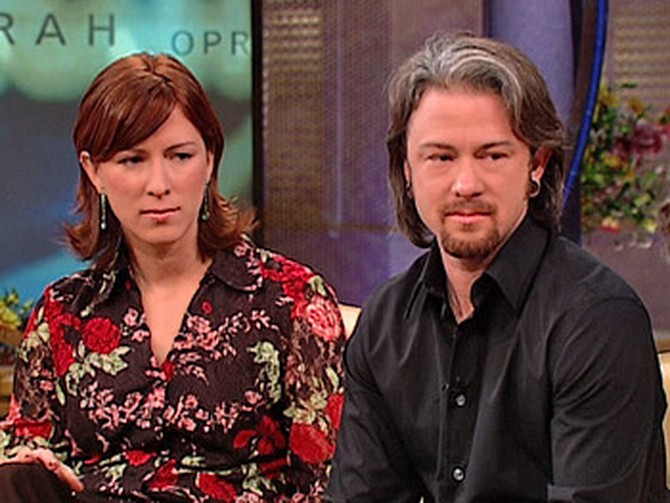
Bonnie's first steps in her sexual transition were changing her name to Aidan and beginning testosterone treatments. Aidan's body fat shifted, his menstrual periods stopped and his voice changed. Having his breasts removed, Aidan says, was the point of no return. "[It was] pretty shocking to walk out into the world for the first time without my shirt. It's kind of liberating." For now, Aidan has decided not to have surgery to construct a penis. "There's a lot of reasons," he says. "It's not cheap. I don't want to risk...messing anything up."
For Brenda, Aidan's sex change challenged her own identity. "It was very emotionally difficult," she says. "I'm an identical twin. Can you take that away from somebody?" But Brenda soon realized that even though Aidan's outward appearance was different, their special bond would always be the same. Brenda now looks at the bearded man sitting next her and sees only her much-loved twin. "Do you [still] feel identical?" Oprah asks. Brenda smiles and answers with conviction, "I feel absolutely identical."
For Brenda, Aidan's sex change challenged her own identity. "It was very emotionally difficult," she says. "I'm an identical twin. Can you take that away from somebody?" But Brenda soon realized that even though Aidan's outward appearance was different, their special bond would always be the same. Brenda now looks at the bearded man sitting next her and sees only her much-loved twin. "Do you [still] feel identical?" Oprah asks. Brenda smiles and answers with conviction, "I feel absolutely identical."

Were Aidan's parents as accepting of his transition?
Aidan: My mom always rolls with things and says, "Yes honey, I love you no matter what." And then she has her reactions on her own time. I think that it took her a bit of time to really come about. ... And my father, he just said, "Well, I've always wanted a son."
Oprah: You're lucky.
Aidan: My mom always rolls with things and says, "Yes honey, I love you no matter what." And then she has her reactions on her own time. I think that it took her a bit of time to really come about. ... And my father, he just said, "Well, I've always wanted a son."
Oprah: You're lucky.
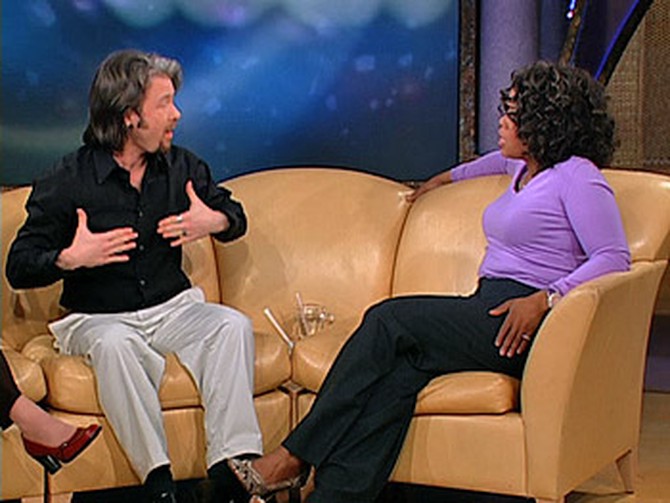
For Aidan, adjusting to life as a man has had its tricky moments. There are the challenges you'd expect—like getting used to going to the men's restroom—but the toughest test, he says, has been learning how to interact socially. For instance, hugging, touching and knowing how long to keep eye contact with a woman are now issues he faces every day.
"There's a certain place where it's inappropriate as a man," he says, "that's different from how I did it before. Or, I see a cute little baby. Can I comment, 'Oh, what a beautiful daughter you have?' That's not as okay anymore because people are protective of their children [from men]."
Aidan says that he was getting stressed out trying to figure it all out when he decided, "Forget it, I'm just going to be me."
"There's a certain place where it's inappropriate as a man," he says, "that's different from how I did it before. Or, I see a cute little baby. Can I comment, 'Oh, what a beautiful daughter you have?' That's not as okay anymore because people are protective of their children [from men]."
Aidan says that he was getting stressed out trying to figure it all out when he decided, "Forget it, I'm just going to be me."
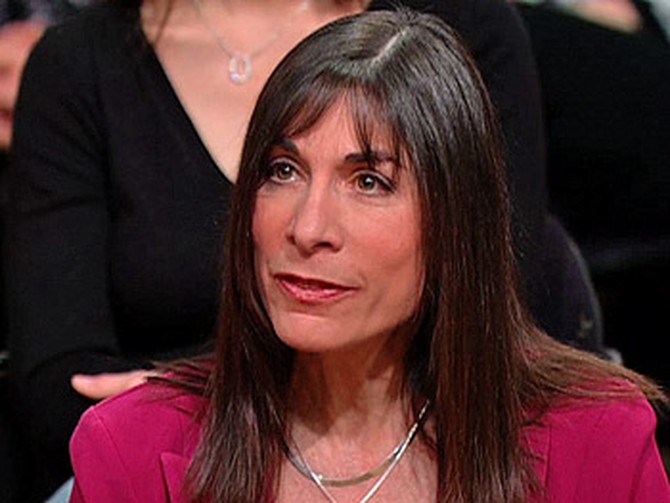
Dr. Nancy Segal is a psychologist and director of the Twin Studies Center at California State University at Fullerton. She's author of the book Entwined Lives: Twins and What They Tell Us About Human Behavior. She says that although identical twins have the same DNA, differences develop as early as the first few days following conception.
What about after birth—are mom or dad to blame for a child's sexual identity crisis? Twins studies indicate that the answer is no.
"It's unlikely that parents create differences between twins," Dr. Segal says. "Why would parents have two identical female twins and treat one like a little boy and one like a little girl? It just doesn't make sense. ... I think that the more we study [transgender men and women], parents will understand that it's nothing they did."
What about after birth—are mom or dad to blame for a child's sexual identity crisis? Twins studies indicate that the answer is no.
"It's unlikely that parents create differences between twins," Dr. Segal says. "Why would parents have two identical female twins and treat one like a little boy and one like a little girl? It just doesn't make sense. ... I think that the more we study [transgender men and women], parents will understand that it's nothing they did."
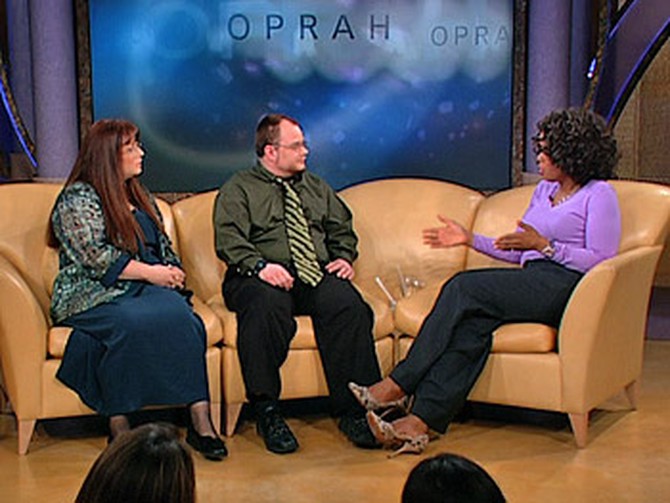
Identical twins Juanita and Liana were born five minutes apart. From the age of three, Juanita knew that she wanted to be a boy. Every Christmas, Juanita would wish that Santa Claus would make her into a boy. Years later she would get her wish and become Juan...but not without struggle.
"[I wanted] to wake up with all the right parts," Juan says. "My mom was very concerned. Sometimes I would get spanked."
Juan recalls when he developed breasts as an adolescent girl, and hiding them with binding and baggy sweaters. "My breasts were like tumors—I wanted them off," he now says. "Puberty was horrible. ... I started noticing girls."
"[I wanted] to wake up with all the right parts," Juan says. "My mom was very concerned. Sometimes I would get spanked."
Juan recalls when he developed breasts as an adolescent girl, and hiding them with binding and baggy sweaters. "My breasts were like tumors—I wanted them off," he now says. "Puberty was horrible. ... I started noticing girls."
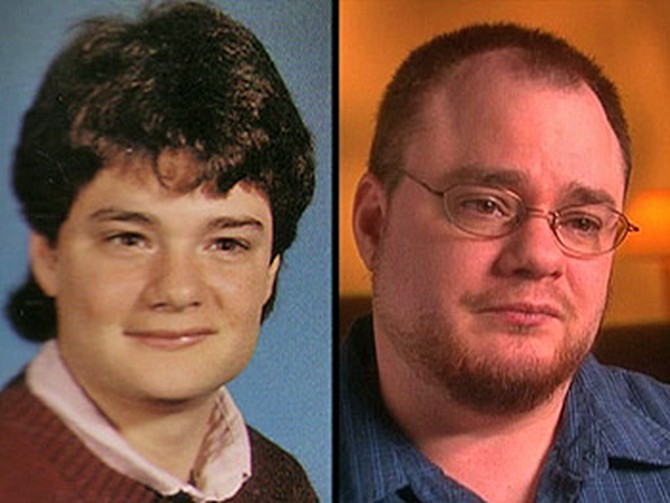
Before becoming a man and changing his name, Juan's attraction to girls tormented him because lesbianism is forbidden in the family's Mormon faith. "I felt that just because of my feelings that eventually I would go to hell. ... There wasn't anything I could do to prevent them or silence them. ... I didn't think that I could prevent myself from acting on them at a later date, so I was going to hell. [By committing suicide], I could prevent having my partner go to hell with me."
Feeling unable to continue living as Juanita, he swallowed a bottle of Excedrin®. His mother rushed him to the hospital to have his stomach pumped. He was diagnosed with gender identity disorder and, throughout the next decade, went to a series of Mormon doctors looking for answers. During this time he cut his breasts with razor blades and continued to battle thoughts of suicide.
In college, Juan—who was still living as Juanita—met a therapist who finally gave him hope. The doctor prescribed testosterone. "It was either change or die," Juan says. "It was time to try something new, even though it went against my religious beliefs."
Then he began going by Juan and had a hysterectomy and chest reconstruction. Juan is very excited about his final surgery—genital reassignment. How are doctors able to give him a penis? "They use what nature's given you," Juan explains, "and they nip and tuck. ... I'm so looking forward to that day! ... When people ask me if I miss being a woman, I'm like, 'Do you miss having cancer?' It's the same feeling."
Feeling unable to continue living as Juanita, he swallowed a bottle of Excedrin®. His mother rushed him to the hospital to have his stomach pumped. He was diagnosed with gender identity disorder and, throughout the next decade, went to a series of Mormon doctors looking for answers. During this time he cut his breasts with razor blades and continued to battle thoughts of suicide.
In college, Juan—who was still living as Juanita—met a therapist who finally gave him hope. The doctor prescribed testosterone. "It was either change or die," Juan says. "It was time to try something new, even though it went against my religious beliefs."
Then he began going by Juan and had a hysterectomy and chest reconstruction. Juan is very excited about his final surgery—genital reassignment. How are doctors able to give him a penis? "They use what nature's given you," Juan explains, "and they nip and tuck. ... I'm so looking forward to that day! ... When people ask me if I miss being a woman, I'm like, 'Do you miss having cancer?' It's the same feeling."
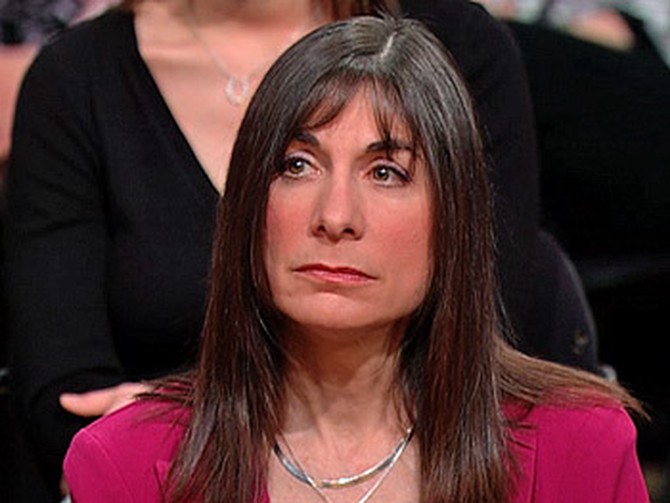
Dr. Segal has spent the last year studying Juan and Liana's case, and she says their different sexual identities were probably determined in the womb. "We know that their mother had a very stressful pregnancy," Dr. Segal says. "She had a kidney infection. She was in a car accident. We know that certain hormones can be released during pregnancies that could possibly affect the brain of one twin and not the other."
The fact that Juan and so many other transsexual men and women struggle with their feelings at such an early age, Dr. Segal says, indicates that sexual identity is not a choice made in childhood or adolescence. "Juan and Liana were born into a family at the same time, they're identical twins, had many similar experiences—and yet they ended up in such opposite directions. So we really think that whatever is responsible for the difference in behavior was there from the moment of birth."
The fact that Juan and so many other transsexual men and women struggle with their feelings at such an early age, Dr. Segal says, indicates that sexual identity is not a choice made in childhood or adolescence. "Juan and Liana were born into a family at the same time, they're identical twins, had many similar experiences—and yet they ended up in such opposite directions. So we really think that whatever is responsible for the difference in behavior was there from the moment of birth."
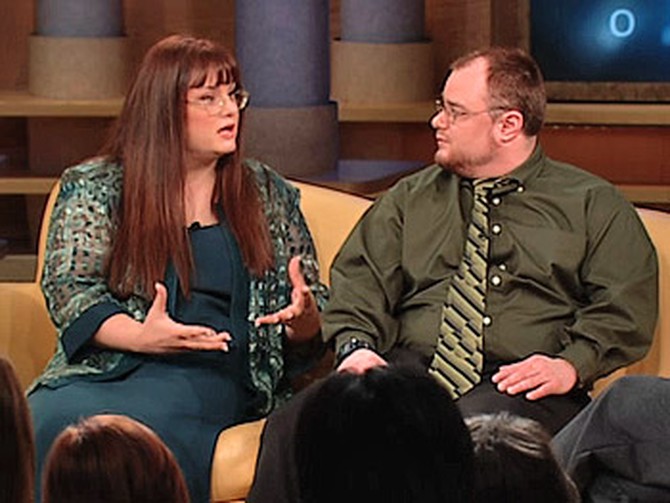
Liana is troubled because Juan's final surgery will cause him to be excommunicated from the Mormon church, but she ultimately thinks that the sex change saved his life. "I'd rather have my twin around as a man than have to go visit him in the cemetery," she says. Oprah asks Liana if she still believes that Juan is condemned to hell for what he did to his body. "I'm leaving it in the Lord's hands," Liana answers. "I really don't know."
Juan says he no longer considers himself a Mormon. "I live a life that I think my heavenly father would be pleased with. I show my fellow man love and respect."
The rest of Juan's family still struggles with his decision. "When I told my mom that I started transition, she cried," Juan says. Liana says that their mother has been very upset, "Even angry. She's worried about Juan's eternal salvation." The twins' siblings also believe that Juan should have lived out his life as a woman. "I tried that for 32 years," Juan says. "I was miserable the whole time. Once I started the transition, I've never been happier."
Juan says he no longer considers himself a Mormon. "I live a life that I think my heavenly father would be pleased with. I show my fellow man love and respect."
The rest of Juan's family still struggles with his decision. "When I told my mom that I started transition, she cried," Juan says. Liana says that their mother has been very upset, "Even angry. She's worried about Juan's eternal salvation." The twins' siblings also believe that Juan should have lived out his life as a woman. "I tried that for 32 years," Juan says. "I was miserable the whole time. Once I started the transition, I've never been happier."
Published 09/16/2005

